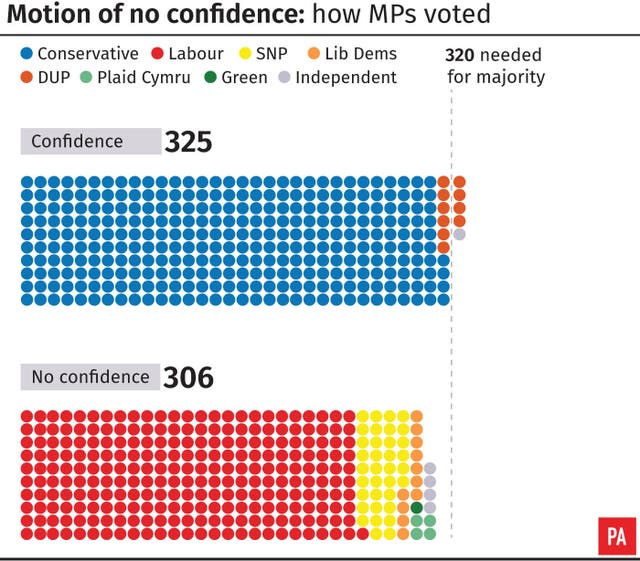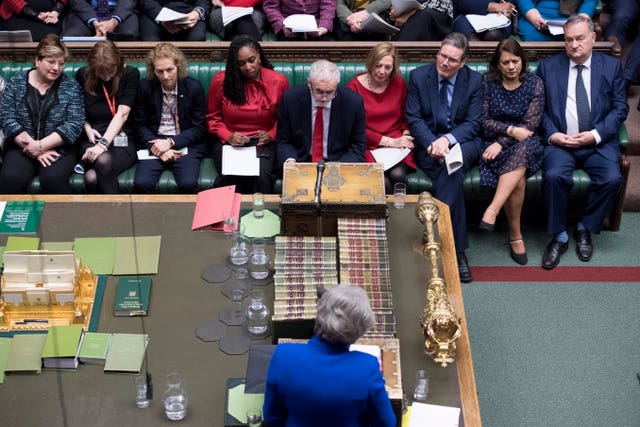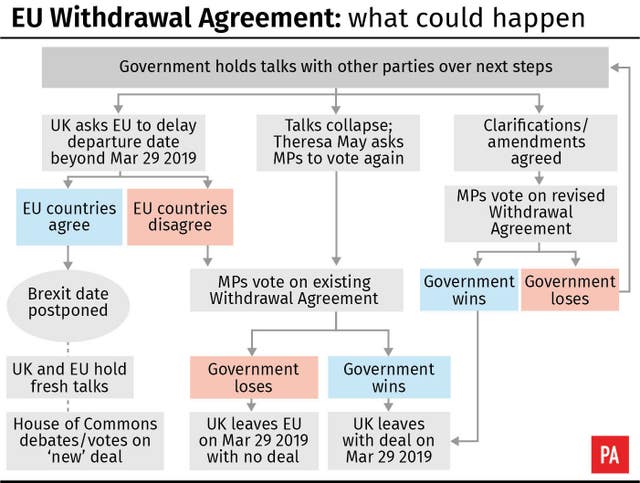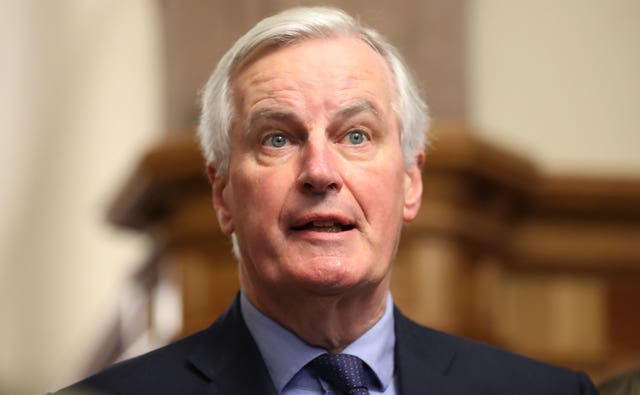Theresa May offers cross-party talks after surviving bid to oust her as PM
Victory in a House of Commons confidence vote clears the way for talks to draw up a Brexit Plan B.

Theresa May has survived an attempt to oust her as Prime Minister, as MPs rejected Jeremy Corbyn’s motion of no confidence in the Government by a margin of 325 to 306.
The Prime Minister’s 19-vote victory came less than 24 hours after the crushing defeat of her EU Withdrawal Agreement in the House of Commons, and clears the way for her to start cross-party talks on a Brexit Plan B.
She invited leaders of opposition parties for talks on the way forward, ahead of her announcement on her next steps on January 21.
But Mr Corbyn said the prospect of departure from the EU without a deal must be taken off the table before there could be any meaningful talks.
And Liberal Democrat leader Sir Vince Cable and the Scottish National Party’s Westminster chief Ian Blackford both made clear they would use any discussions with the PM to press the case for a second referendum.

The SNP and Lib Dems stepped up pressure on Mr Corbyn to back a so-called People’s Vote, after 71 of his own MPs signed a letter saying that the public must decide on Brexit.
Conservative rebels and members of the Democratic Unionist Party who consigned the PM to the worst defeat in parliamentary history on Tuesday rallied behind her to see off the threat of a general election.
Welcoming the result, Mrs May pledged to approach cross-party talks “in a constructive spirit” and urged other parties to do the same, saying: “We must find solutions that are negotiable and command sufficient support in this House.”

She said: “The House has put its confidence in this Government.
“I stand ready to work with any member of this House to deliver on Brexit and ensure that this House retains the confidence of the British people.”
Having escaped the threat to its survival, the Government would “continue to work to deliver on the solemn promise we made to the people of this country to deliver on the result of the referendum and leave the European Union,” said the PM.
But Mr Corbyn responded: “Before there can be any positive discussions about the way forward, the Government must remove clearly once and for all the prospect of the catastrophe of a no-deal Brexit from the EU and all the chaos that would come as a result of that.”
A spokesman for the Labour leader later said a failure to rule out no-deal would amount to “blackmail”. The party did not rule out further confidence motions, but refused to be drawn on timing.
Mr Corbyn’s spokesman said Mrs May must recognise the “reality” facing her Withdrawal Agreement.
“That deal is dead,” he said. “No number of tweaks or sweeteners from Brussels are going to change that. That is absolutely clear. If there is going to be a deal that is going to work for the country and have a majority in Parliament, Theresa May is going to have to abandon her red lines.”
But the PM’s official spokesman said that, while Mrs May favoured an orderly withdrawal with an agreement, a no-deal Brexit was not being ruled out.
There was anger on the Labour side over Mrs May apparently ruling out a customs union, which Mr Corbyn’s party favours.
The PM said talks would be based on the “principles” of “a deal that delivers a smooth and orderly exit, protecting our union, giving control of our borders, laws and money, and allowing us to operate an independent trade policy”.
And a senior Downing Street source later added: “One of the principles as we approach these talks is that we want to be able to do our own trade deals. That is incompatible with either ‘a’ or ‘the’ customs union.”
Shadow chancellor John McDonnell said Mrs May “seems to be negating the discussions before they have even started.”
However, under questioning from Conservative grandee Kenneth Clarke in the Commons, the PM appeared to leave open the door to a possible extension of the Article 50 withdrawal process, which will see Britain leave the EU on March 29, to allow more time for a deal.

The PM is now due to set out her alternative plan for EU withdrawal to MPs on Monday.
But she risks losing control of the Brexit process, as she must table a motion which can be amended by MPs.
They are expected to use the opportunity to seek Commons support for a range of possible outcomes, from ruling out no-deal or opting for Norway-style membership of the single market to a second referendum.
Sir Vince signalled that the Lib Dems will table a People’s Vote amendment.
And Mr Blackford said: “The SNP is committed to working constructively with the Prime Minister, however the option of ruling out a no-deal, extending Article 50 and holding a People’s Vote must now be on the table.”
Following talks with the PM in Downing Street , DUP leader Arlene Foster said: “Lessons will need to be learned from the vote in Parliament.
“The issue of the backstop needs to be dealt and we will continue to work to that end.”
Meanwhile, the EU’s chief negotiator Michel Barnier said he “profoundly” regretted the Commons vote and added it was now up to the British Government to say how it intended to proceed.

“An orderly withdrawal will remain our absolute priority in the coming weeks,” he told the European Parliament in Strasbourg.
He said there would be a “favourable response” from the EU side if Mrs May was prepared to re-think her negotiating “red lines” and seek a more “ambitious” deal with Brussels.
But he firmly rejected calls from some Conservative MPs and the DUP to drop the Northern Ireland “backstop”, intended to ensure there is no hard border with the Republic.
“The backstop which we agreed to with the UK must remain a backstop. It must remain a credible backstop,” he said.





